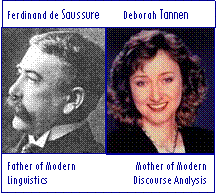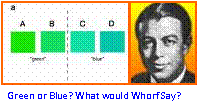Friday, April 4, 2008
One fancy Turkish word and agglutination
So here's a "word" in Turkish that translates, "Are you one of those whom we could not Europeanise?" Avrupalilastiramadiklarimizdanmisiniz? (I haven't represented some of the characters correctly yet, but you get the idea). Agglutinative languages sort of blur the line between word and sentence as grammatical units of language. English is not agglutinative and relies more heavily on having separate words to perform various grammatical functions. Agglutinative languages start with a base word that is likely to be a noun or a verb and then keep adding morphemes to that base for the other units of lexical and grammatical meaning in the utterance. This is a good context to notice the usefulness of utterance as a label rather than sentence. The Turkish sentence above is technically a single word, and yet is syntactically complete. Actually it's more at syntactically replete, (: because it has embedded clauses that include 3 pronouns for subjects and objects and at least two main verbs. Utterance nicely covers both concepts, word and sentence. That's also why we often talk about Morpho-syntax, rather than just morphology or syntax, since you can see there are pretty porous (i.e., leaky (: ) boundaries betwixt them.
Subscribe to:
Post Comments (Atom)











No comments:
Post a Comment